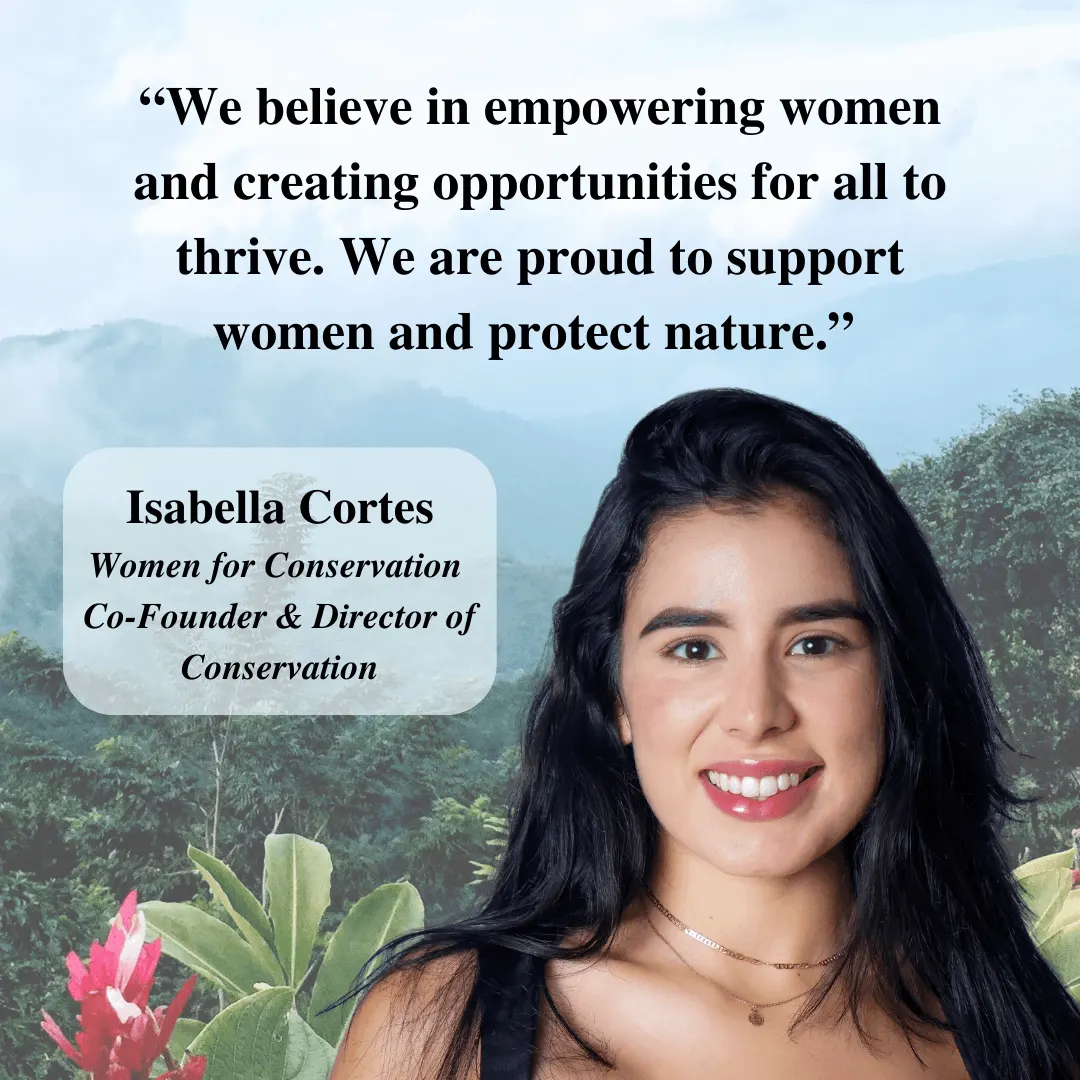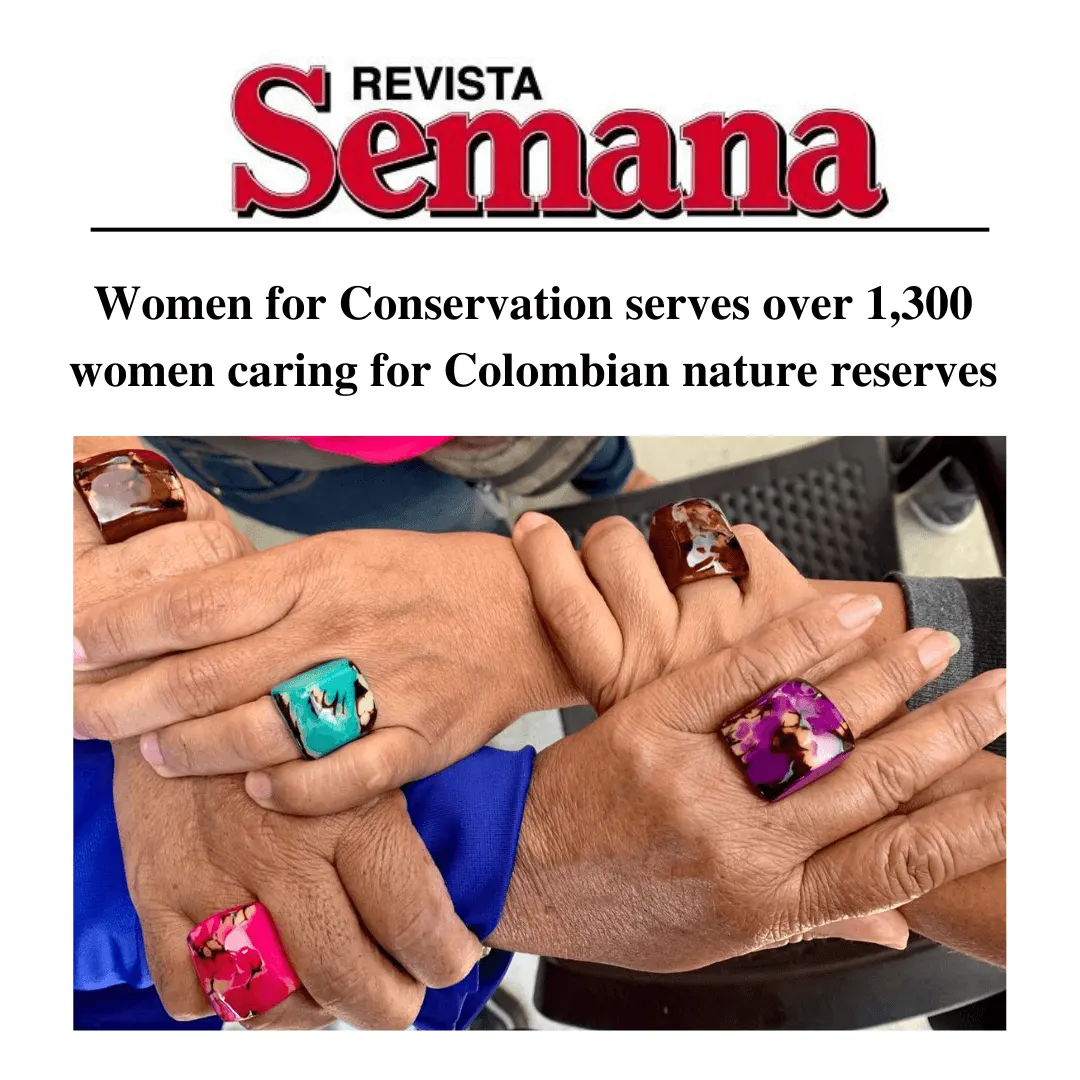
Women for Conservation Serves Over 1,300 Women Caring for Nature Reserves
Women for Conservation empowers women and children to lead eco-friendly projects to protect critical ecosystems around ProAves Reserves in Santander, Tolima, Amazonas, Chocó, Cauca and the Sierra Nevada de Santa Marta, Colombia.
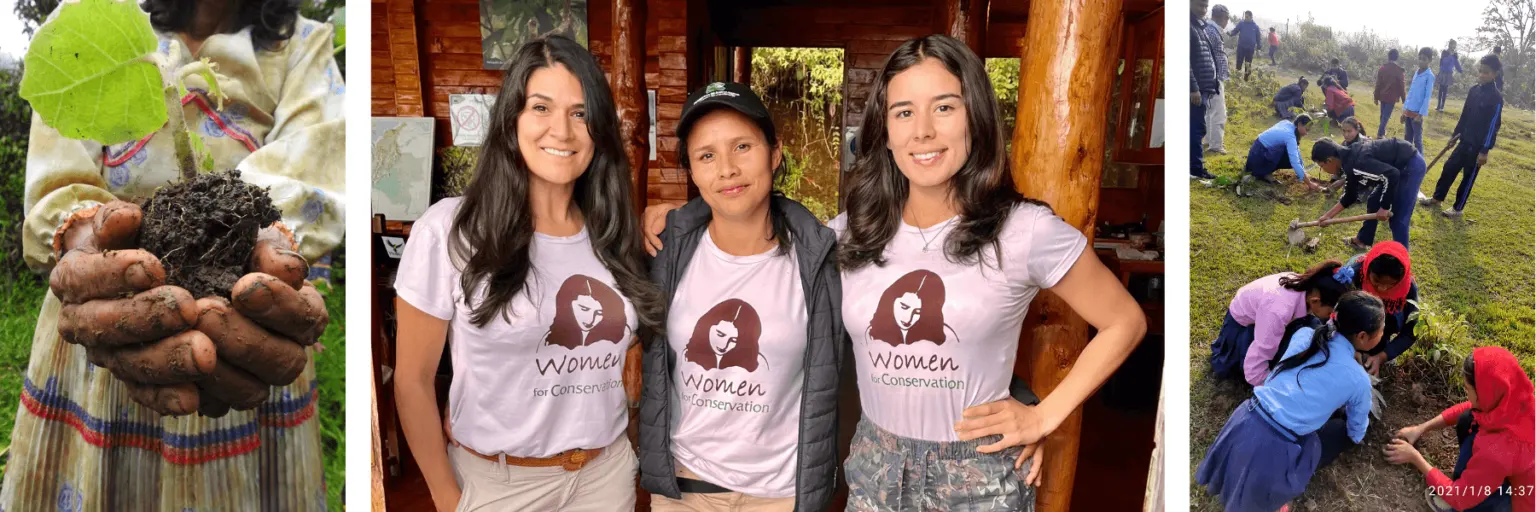
More than 1,300 women living in the Sierra Nevada de Santa Marta, Tolima, Santander, Amazonas, Chocó and Cauca have found environmentally sustainable economic opportunities that encourage people in the communities to move away from extractive practices such as logging, cattle ranching and hunting. Women for Conservation began as a program of the ProAves Foundation in 2004 and is now an independent non-profit that not only provides education and job opportunities, but also empowers women with resources in conservation, family planning, and access to health care.
For Isabella Cortés, vice president of Women for Conservation, you don’t have to be an expert or a biologist to be a conservationist.
“I would argue that rural children and women have more experience than many scientists, because living in the among Colombia’s biodiversity is their day-to-day life.”
For this reason, Women for Conservation decided to engage women from rural communities surrounding seven Colombian nature reserves. These women depend on natural resources for their survival, and through years of work, have managed to empower themselves economically in a sustainable way, creating eco-friendly microbusinesses.
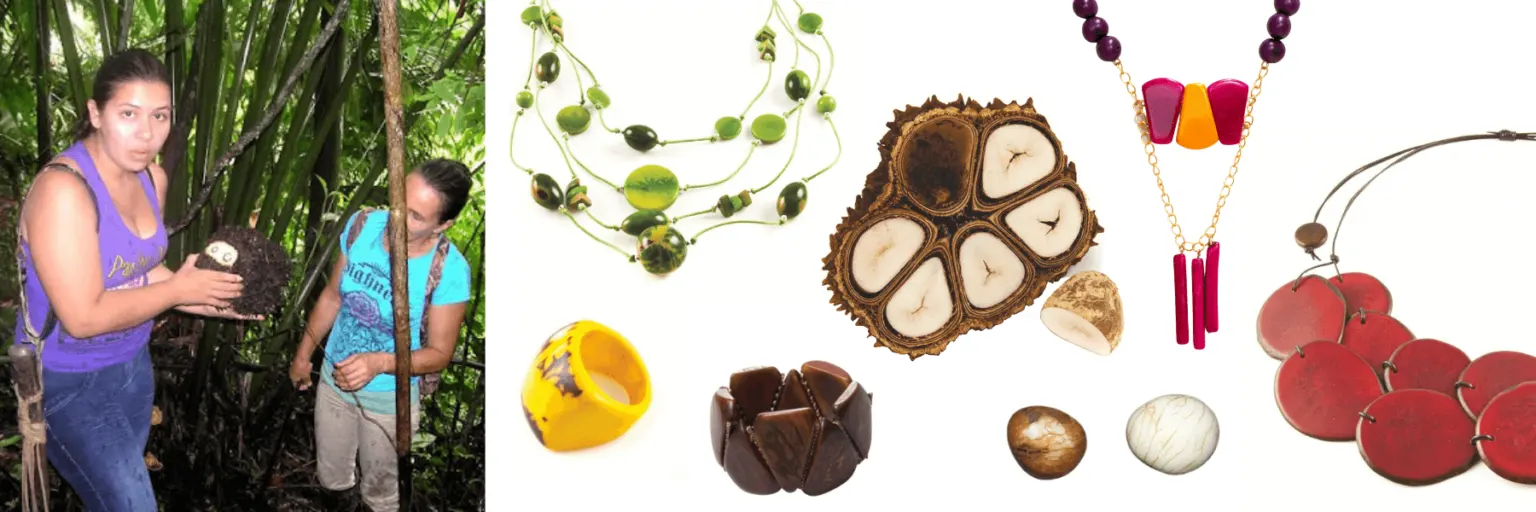
In Santander, women from five villages surrounding el Paujil Nature Reserve were trained to create jewelry and accessories from sustainably harvested Tagua seeds and nuts. Through Women for Conservation’s community education and sustainable livelihoods programs, these local women have managed to reduce the hunting of the critically endangered Blue-billed curassow, increase ecotourism, and bolster the local economy. To spread awareness about and economically support these women’s conservation mission, the products are sold and displayed in the nature reserve stores. They have also been exhibited in foreign sustainable stores, such as The Eden Project, in Cornwall, England.
In addition to supporting women’s sustainable microbusinesses, W4C developed other initiatives such as providing fuel-efficient stoves to reduce deforestation, and workshops on reproductive health. Everything is done for the benefit of the women, their families, and the natural environment they depend on.
In the El Dorado Reserve, in the Sierra Nevada de Santa Marta, a sex education and family planning campaign has been underway for the past two years. Kelly Julio, from Minca, believes that the work of Women for Conservation has helped the community immensely.
“Before, there were girls who would get pregnant at 13 or 15 years old and have to drop out of school. In addition to family planning resources, W4C has trained local women and children in English, cooking, wildlife identification, forest restoration, and art classes,” she says.
This year in El Dorado’s female entrepreneurship program, women were trained by a professional chef in food handling and preparation as well as gardening and horticulture. This training and certification will allow them to establish ecotourism microbusiness, to bring extra income and nutritious food to their families.
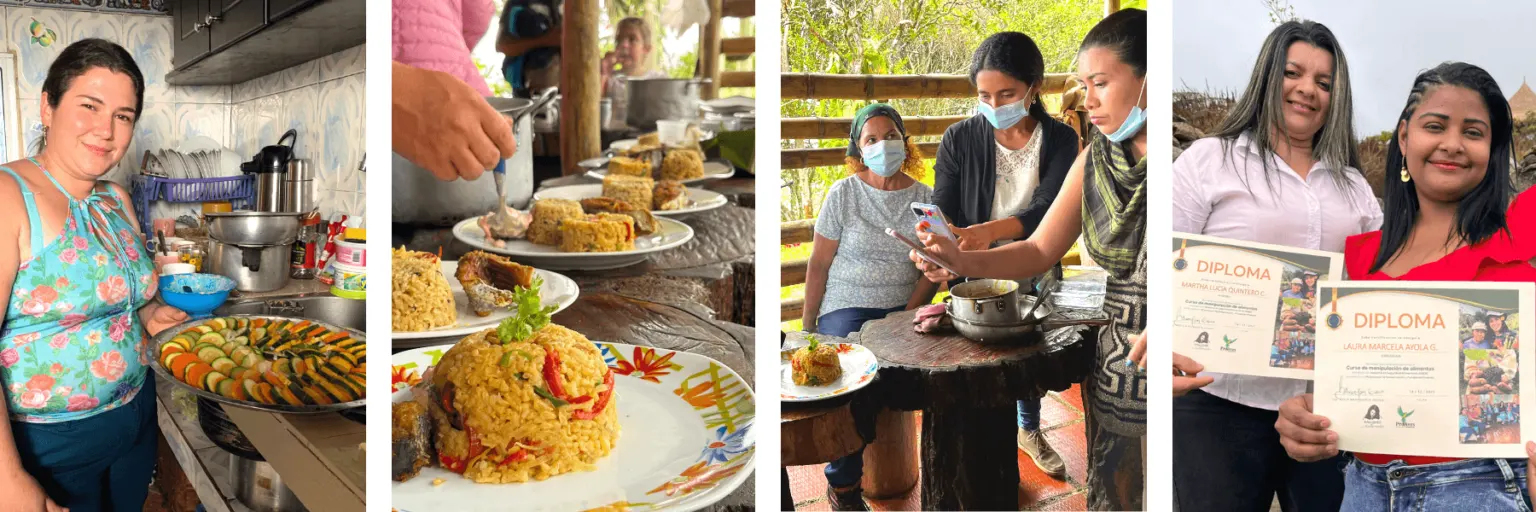
One of the commitments of W4C is to involve women and communities in the processes of conservation, empowerment and sustainable development. W4C has similar projects across Colombia, surrounding the ProAves reserves El Jaguar and Águila Arpía (in the Amazon); Loros Andinos (Tolima); Reinita Cielo Azul (Santander); Tangaras, Chocó, and Ranita Terribiliis (Cauca).
